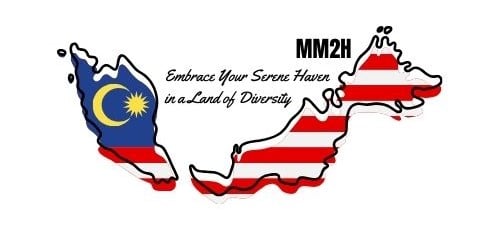Why Are More and More Chinese Nationals Moving to Malaysia?
In recent years, Malaysia has emerged as a prime destination for Chinese nationals seeking new opportunities, lifestyle upgrades, and long-term residency. From affordable education and investment prospects to a warm multicultural environment, Malaysia ticks many boxes for families, retirees, and entrepreneurs alike. This article explores the key reasons driving this trend and why Malaysia has become a top choice for Chinese nationals.
1. Education: World-Class and Affordable
For Chinese families, education is a high priority, and Malaysia’s reputation as an affordable hub for quality education has grown significantly. Universities like Universiti Malaya, Taylor’s University, and Monash University Malaysia offer degrees recognized globally, often in collaboration with renowned institutions from the UK and Australia.
- Affordable Costs: Compared to Western countries, tuition fees in Malaysia are considerably lower. Additionally, living costs, including housing, food, and transportation, are budget-friendly, making Malaysia an attractive option for middle-class families.
- Cultural Comfort: With a significant Chinese-Malaysian population, students often feel at home. Mandarin and Cantonese are widely spoken, and traditional Chinese festivals like Lunar New Year are celebrated on a national scale.
- Ease of Visa Applications: Malaysia’s streamlined student visa process reduces bureaucratic hassles, allowing families to focus on their children’s education instead of paperwork.
The result? Between 2021 and 2023, Chinese student enrollment in Malaysian universities rose by over 30%, highlighting the country’s growing appeal as an educational hub.
2. Investment and Business Opportunities
Malaysia’s pro-business environment and strategic location at the heart of Southeast Asia make it an excellent destination for Chinese investors and entrepreneurs.
- Strategic Location: Situated at the crossroads of Asia, Malaysia provides access to the ASEAN market of over 650 million people. Its well-developed infrastructure and trade-friendly policies make it a natural gateway for businesses aiming to expand regionally.
- Ease of Doing Business: The Malaysian government actively encourages foreign investment through tax incentives, business grants, and relaxed regulations. These measures align with China’s Belt and Road Initiative, further strengthening the economic ties between the two nations.
- Real Estate Affordability: For Chinese investors, Malaysia’s property market is particularly appealing. Compared to skyrocketing real estate prices in cities like Beijing or Shanghai, properties in Malaysia are relatively affordable, offering great value for money. Programs like Malaysia My Second Home (MM2H) even allow foreign investors to secure long-term residency while owning property.
- Cultural and Economic Support: The large Chinese-Malaysian community creates a built-in support network for new arrivals, making it easier to adapt and establish business ventures.
Malaysia’s reputation as an investment-friendly country is further bolstered by its political stability and transparent policies, offering peace of mind to entrepreneurs and investors.
3. Malaysia My Second Home (MM2H) Program

The Malaysia My Second Home (MM2H) program is a game-changer for Chinese nationals looking to settle abroad. This initiative allows qualified foreigners to obtain long-term residency, opening doors to a wealth of opportunities.
- Long-Term Residency: Participants can stay in Malaysia for up to 10 years, with an option to renew. This stability is particularly attractive to retirees and families.
- Flexible Financial Criteria: In 2023, the introduction of a “Silver” category made the program more accessible by lowering financial requirements, appealing to a broader range of applicants.
- Tax Benefits: Malaysia’s tax policies are another major draw. Foreign-sourced income is not taxed, making it highly appealing for Chinese nationals with international income sources.
- Retirement-Friendly Features: Many retirees are drawn to Malaysia for its affordable healthcare, mild climate, and high standard of living. The MM2H program provides a structured way for retirees to transition into this relaxed lifestyle.
This program has been instrumental in attracting thousands of Chinese nationals, making Malaysia their home away from home.
4. Affordable and Comfortable Living

For many Chinese nationals, the lower cost of living in Malaysia compared to China’s major cities is a significant factor.
- Housing: Rental and property prices in Malaysia are far more affordable than in metropolises like Shanghai, allowing migrants to live comfortably without financial strain.
- Daily Expenses: Essentials such as groceries, dining out, and transportation are reasonably priced, enabling families to enjoy a higher standard of living.
- Healthcare: Malaysia’s healthcare system is both high-quality and cost-effective. With modern facilities and well-trained medical professionals, the country is also a hotspot for medical tourism.
This combination of affordability and quality ensures that migrants can build a comfortable life in Malaysia without overspending.
5. Multicultural and Inclusive Environment
Malaysia’s rich cultural diversity is a unique selling point. As home to Malays, Chinese, Indians, and other ethnic groups, the country offers a vibrant and inclusive society.
- Chinese-Malaysian Community: The significant presence of Chinese-Malaysians means that new arrivals often feel an immediate sense of belonging. From shared languages to cultural practices, integration is relatively seamless.
- Celebrations and Traditions: National celebrations like Chinese New Year and the Mid-Autumn Festival ensure that Chinese migrants can stay connected to their cultural roots.
- Food and Lifestyle: Malaysia’s food scene is renowned for its variety and flavor, blending influences from different cultures. For Chinese nationals, the availability of authentic Chinese cuisine adds to the country’s appeal.
Malaysia’s multicultural environment not only fosters inclusivity but also provides a rich and engaging lifestyle for its residents.
6. Proximity to China
Geographic proximity is another major advantage. Direct flights connect major Chinese cities to Malaysian destinations like Kuala Lumpur, Penang, and Kota Kinabalu, with travel times averaging 4-6 hours.
This convenience allows Chinese migrants to maintain close ties with family and friends back home, making the transition smoother. Frequent and affordable travel options further enhance Malaysia’s appeal as a second home.
7. Healthcare and Safety
Malaysia offers excellent healthcare and a safe living environment, two factors that are highly valued by Chinese migrants.
- World-Class Healthcare: With modern hospitals and skilled medical professionals, Malaysia’s healthcare system rivals that of developed nations. Private healthcare is particularly accessible and affordable.
- Safety: Malaysia is considered one of the safest countries in Southeast Asia, with low crime rates and a stable political climate. This makes it an attractive destination for families and retirees looking for peace of mind.
These factors ensure that migrants can settle in Malaysia with confidence, knowing their well-being is in good hands.
8. Political and Economic Factors in China
China’s internal political and economic landscape has also contributed to the increasing migration to Malaysia.
- Economic Pressures: Slowing economic growth and rising living costs in China have led many to explore better opportunities abroad. Malaysia, with its lower costs and abundant prospects, stands out.
- Political Climate: Increased government regulations and surveillance in China have pushed some citizens to seek a freer and more stable environment. Malaysia’s democratic system and relaxed governance provide a welcome contrast.
The combination of external pressures in China and opportunities in Malaysia has fueled this migration trend.
Conclusion
Malaysia’s allure lies in its perfect blend of affordability, accessibility, and opportunity. Whether it’s quality education, business prospects, or a welcoming environment, the country offers something for everyone. Programs like Malaysia My Second Home have made it easier than ever for Chinese nationals to transition into life in Malaysia, fostering deeper ties between the two nations.
As the trend of Chinese migration to Malaysia continues to grow, the relationship between the two countries is set to strengthen, creating opportunities for cultural exchange and economic collaboration.




